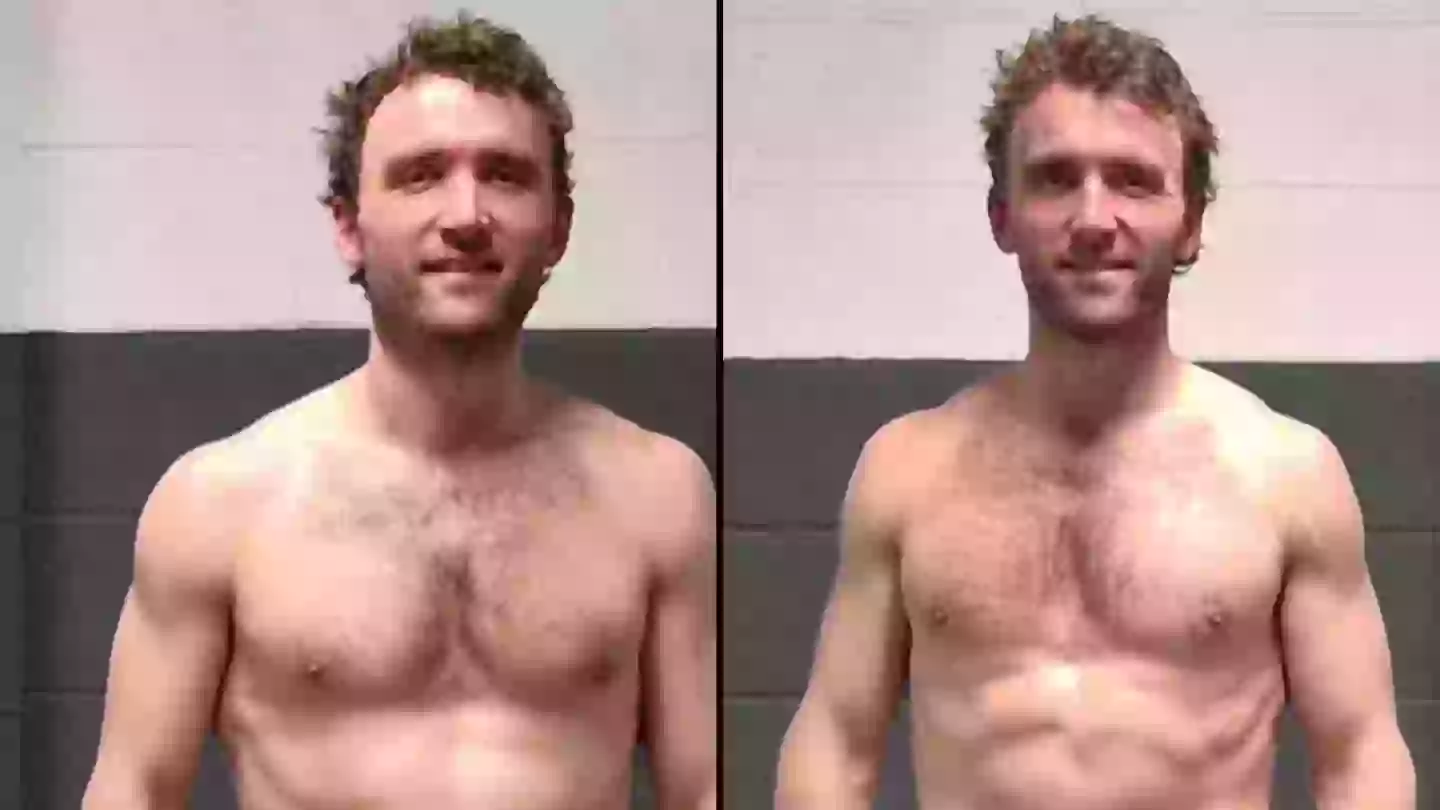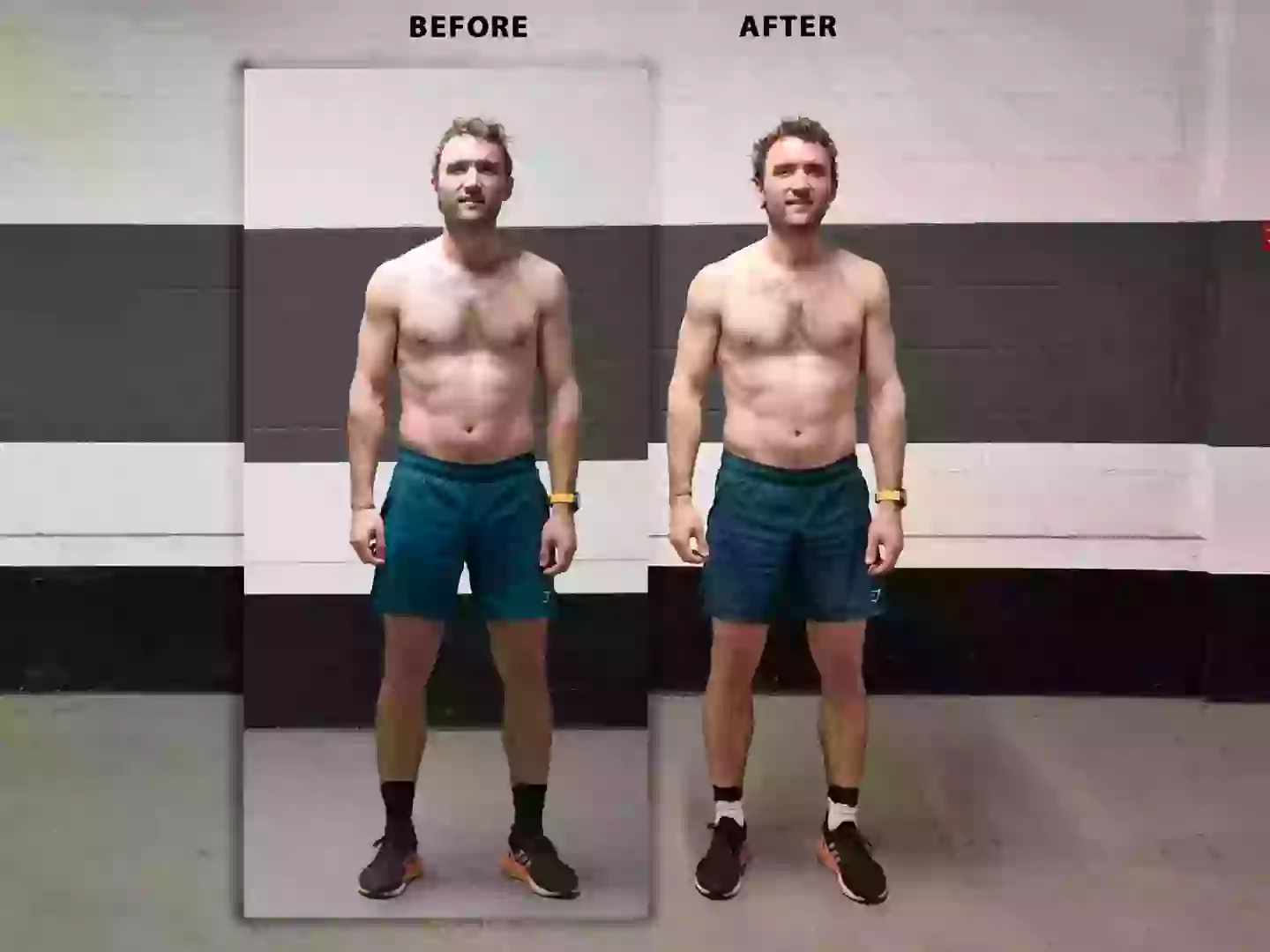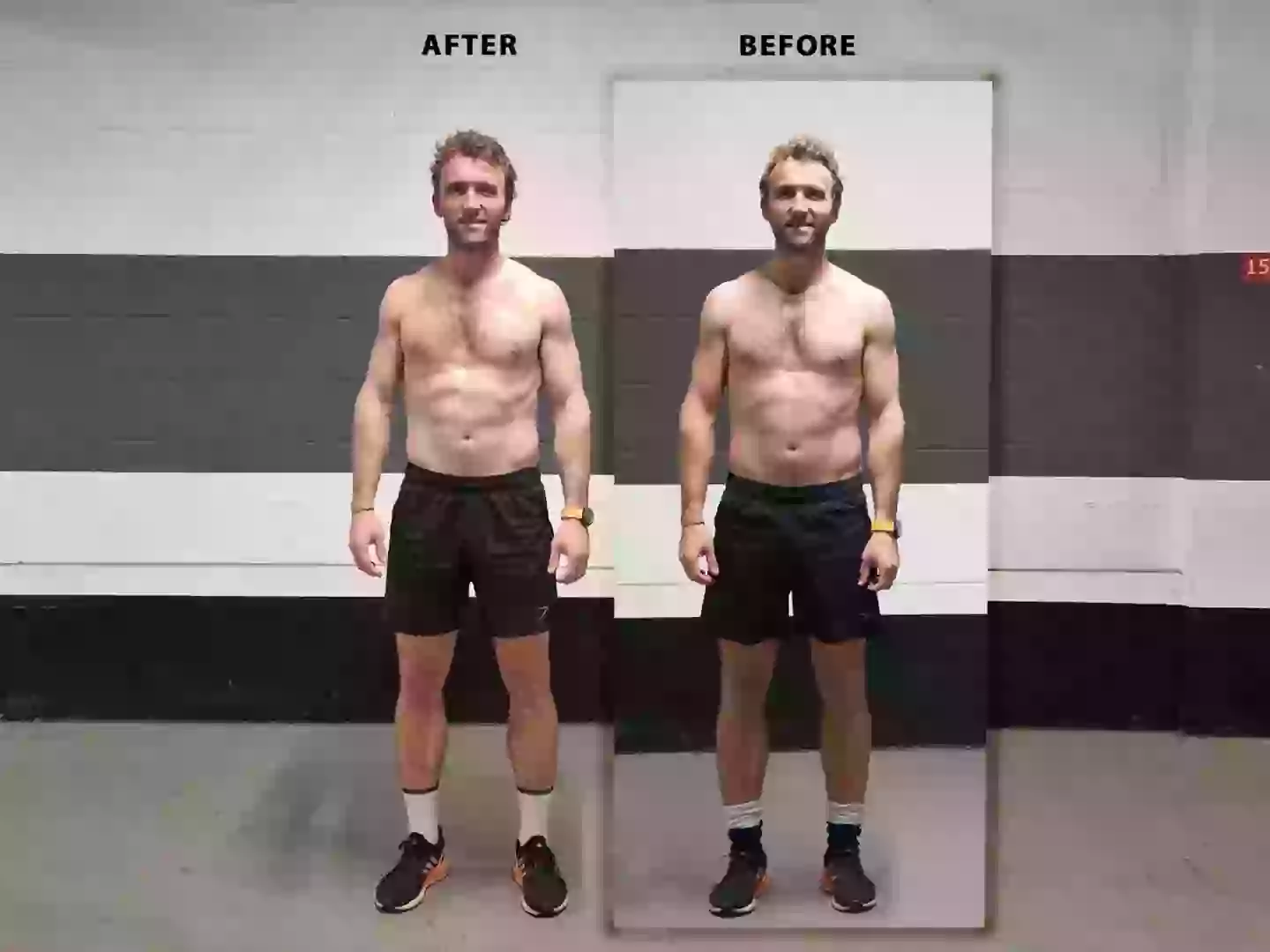
A lot of people are under the illusion that the more you give, the more you get - in both life and the gym.
But have you ever wondered whether doubling your efforts really does pay off twofold? Because these identical twins have.
British adventurers, brothers and fellow fitness buffs Hugo and Ross Turner decided to put this theory to the test with a 12-week experiment, which they say yielded some 'epically-curious results'.
Advert
This isn't the first time that the Exeter-born explorers, aged 36, have used the fact they share the same genetic material in the hopes of furthering science, either.
In 2021, the Turner's took on two different diets for three months - one plant-based, one omnivore - to find out what difference it made to their bodies.
Take a look at this:
But last year, the duo decided to take their investigations even further by finding out if spending twice as long exercising is actually worth it.
Advert
To do this, Hugo worked out in 20-minute sessions over a 12-week period, while his identical twin Ross did double that and worked up a sweat for 40-minutes.
Speaking to Men's Health about their motivations in 2023, Ross said: "Outside of our expeditions, we are very curious to understand what works best in the gym.
"Because we're twins we can directly compare one fitness regime to another or one diet versus another.
"We wanted to identify whether doing double 20-minutes is more efficient - would you see double the gains?
"Interestingly, through our gym programme, we found out some epically-curious results that I think will cause a lot of people to question what they're doing in the gym."
Advert

The experiment
The pair would kick off each workout together, following the exact same routine...but at the 20-minute mark, Hugo was able to 'stop, stretch and recover'.
However, Ross had to restart the clock and repeat the exact same exercises all over again. You can see who got the short straw here.
The workouts included dead lifts, squats, bench press and stretching - and the lads would usually hit the gym up for two or three days in a row, before having a rest day.
Advert
To keep track of their progress, they stepped onto one of Virgin Active's Boditrax machines before each workout, taking note of their body weight, muscle mass, fat mass and fat percentage.
"Every single day, we had a blueprint of how are bodies were reacting to the 40-minutes vs 20-minutes," Hugo said.
They didn't track their diet, but reckoned that they were consuming around 2,000 to 2,500 calories a day, and they both ate the same things for the most part.
Both of them obviously noticed an improvement in their physical fitness and strength over the three-month experiment, but their development was also being monitored by body scans which measured their weight and body compositions, while they also kept track of their cardiovascular fitness.

The results
So, after 12-weeks of Ross putting in twice the work, did he out-hunk Hugo twice over by the end of the experiment?
Advert
To some degree, Ross did fare better physically than his twin, but seen as though it was by such a small amount, the pair reckon doubling your time in the gym is 'just not worth it'.
Hugo said: "The results show that there's less than a 5% uplift for the 40-minutes. You'd think double the work would see more than a 5% uplift, but it didn't. It's just not worth it.
"At the start, Ross started around a kilo heavier than me and throughout the whole twelve weeks we tracked and trended exactly the same, so there was no massive difference in our weight, either an increase or decrease."
Ross added: "Body fat for this 12-week study was slightly better on the 20-minutes. Muscle mass stayed the same, and that was probably due to us eating fairly similar diet.
"We weren't eating a huge amount of calories, which is always efficient for us because the one thing we don't want to do is go off on an expedition and drastically cut our calorie intake."
The brothers believe that short and sweet gym sessions might be the way to go.
The Turner's takeaways
Hugo explained that he found he 'always had the motivation' to complete his 20-minute workouts as 'it's such a short period of time'.
"I always felt motivated physically, and I didn't knacker myself out so much, but at the end of the 20-minutes I felt like I was pumped," he explained.
"The downside is I never felt like I actually went to the gym. I always felt like I wanted to do a bit more, so on the physical side I felt good, but on the mental side I felt bad."
But Ross, on the other hand, found it extremely 'tough' doing twice the work.
"Once he'd finished I had the whole lot to do again, and our gym programme over the 20-minutes was quite dense, so there wasn't a huge amount of rest time," Ross said.
"It was 40-minutes of, 'Yes, my mind has certainly worked out, but my body was a bit too spent."

So, what did they take away from the experiment?
Hugo reckons that the big lesson learnt here is that consistency is key.
He added: "20-minutes is far easier to execute everyday if you want to find that consistency and motivation. 40-minutes you definitely found it a lot harder to motivate yourself and do that consistently."
Ross chimed in: "For me, knowing that I was working twice as hard and putting in twice as much effort and yet the results weren't there was a little deflating. I think now we've done the twelve-week programme and we've seen the results, I'm going to struggle to do 40-minutes because I know there's no point in doing it."
Despite their admirable efforts to conduct the experiment, experts warned that the Turner's research was too small-scale and uncontrolled for the results to be taken as gospel.
A senior lecturer in sport and exercise science at Teesside University, Michael Graham, told Business Insider: "We can't confidently assume any of the relationships or differences discussed between Hugo and Ross are anything to do with them as twins or simply typical variations and similarities we would see in any pair of individuals."